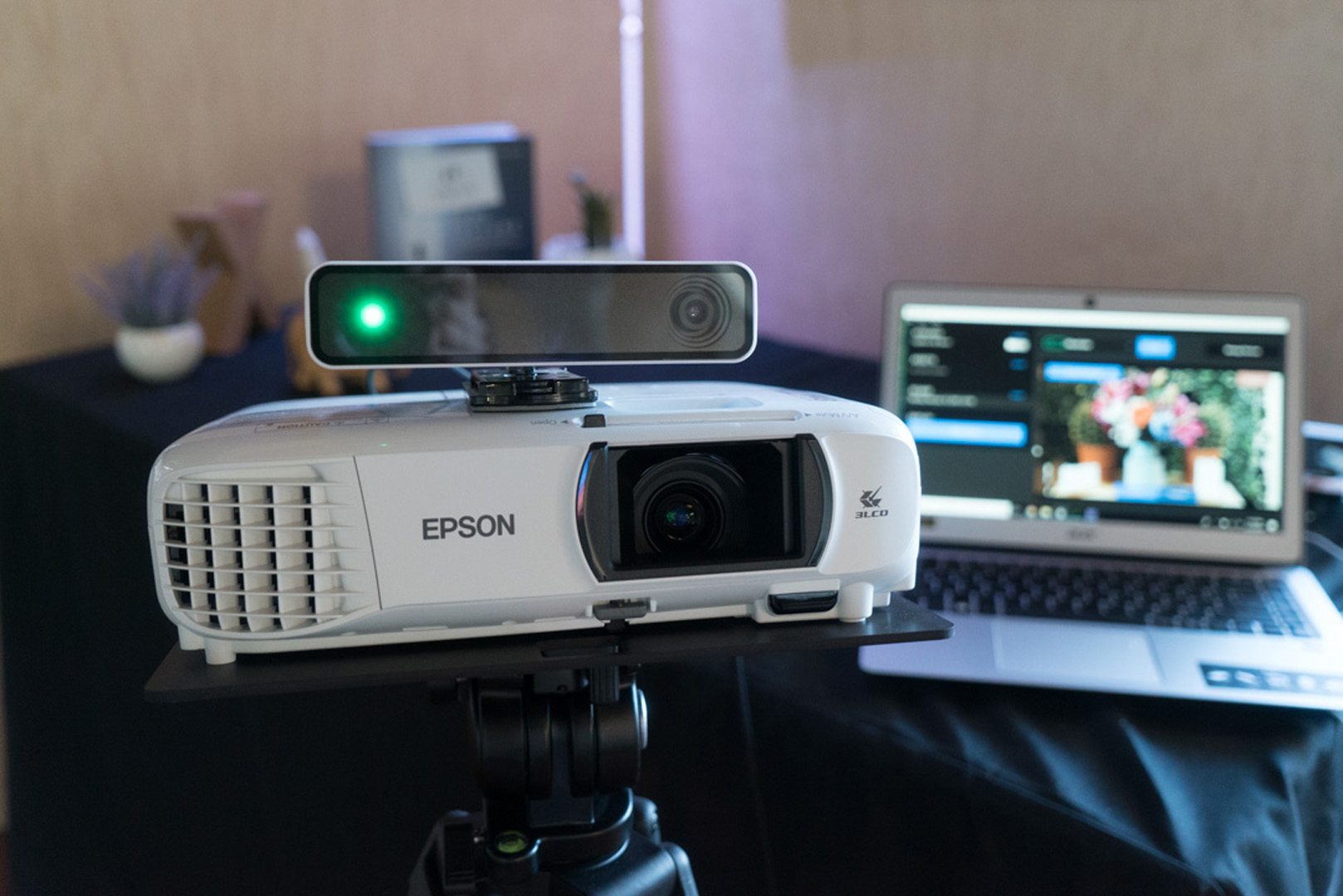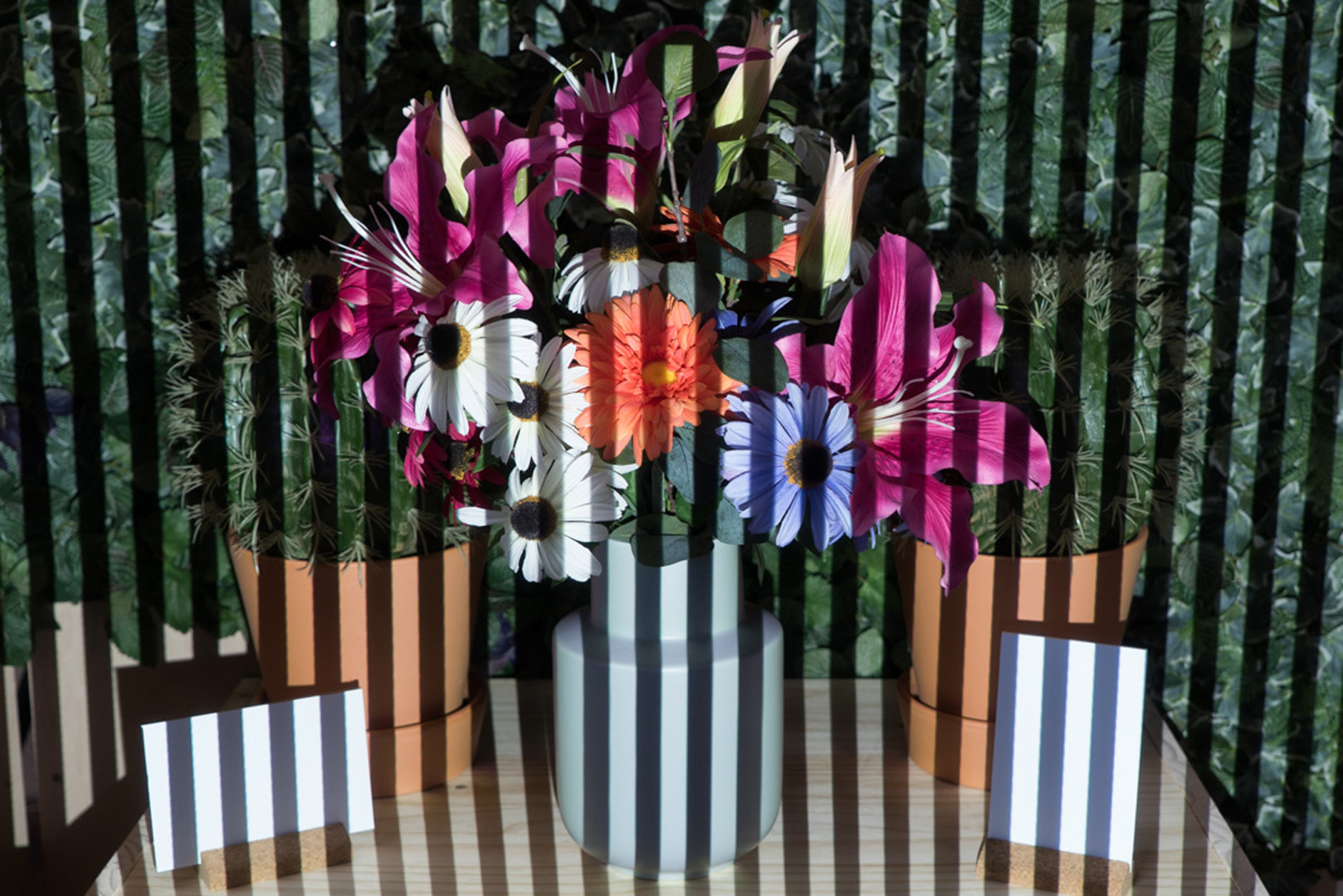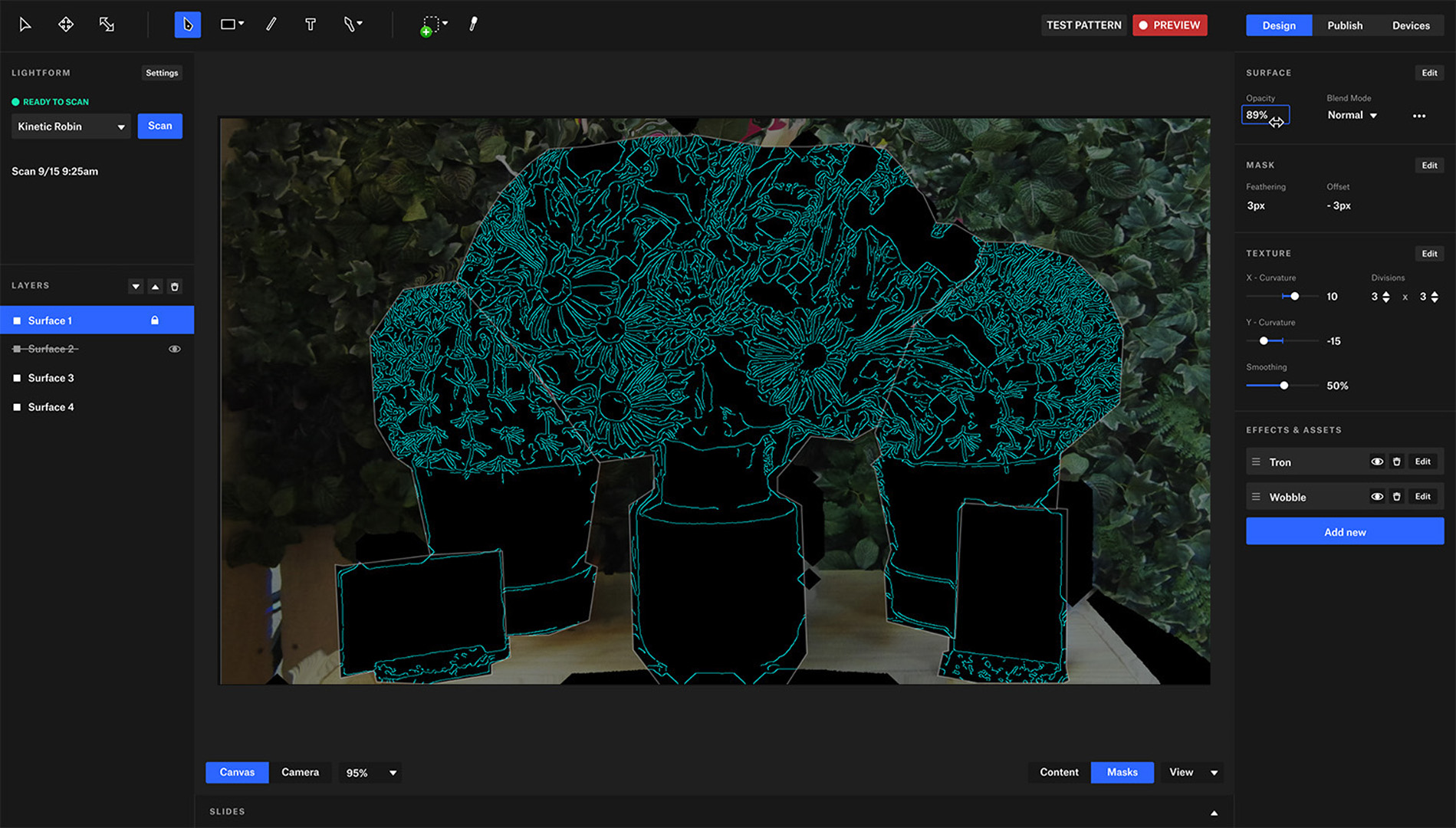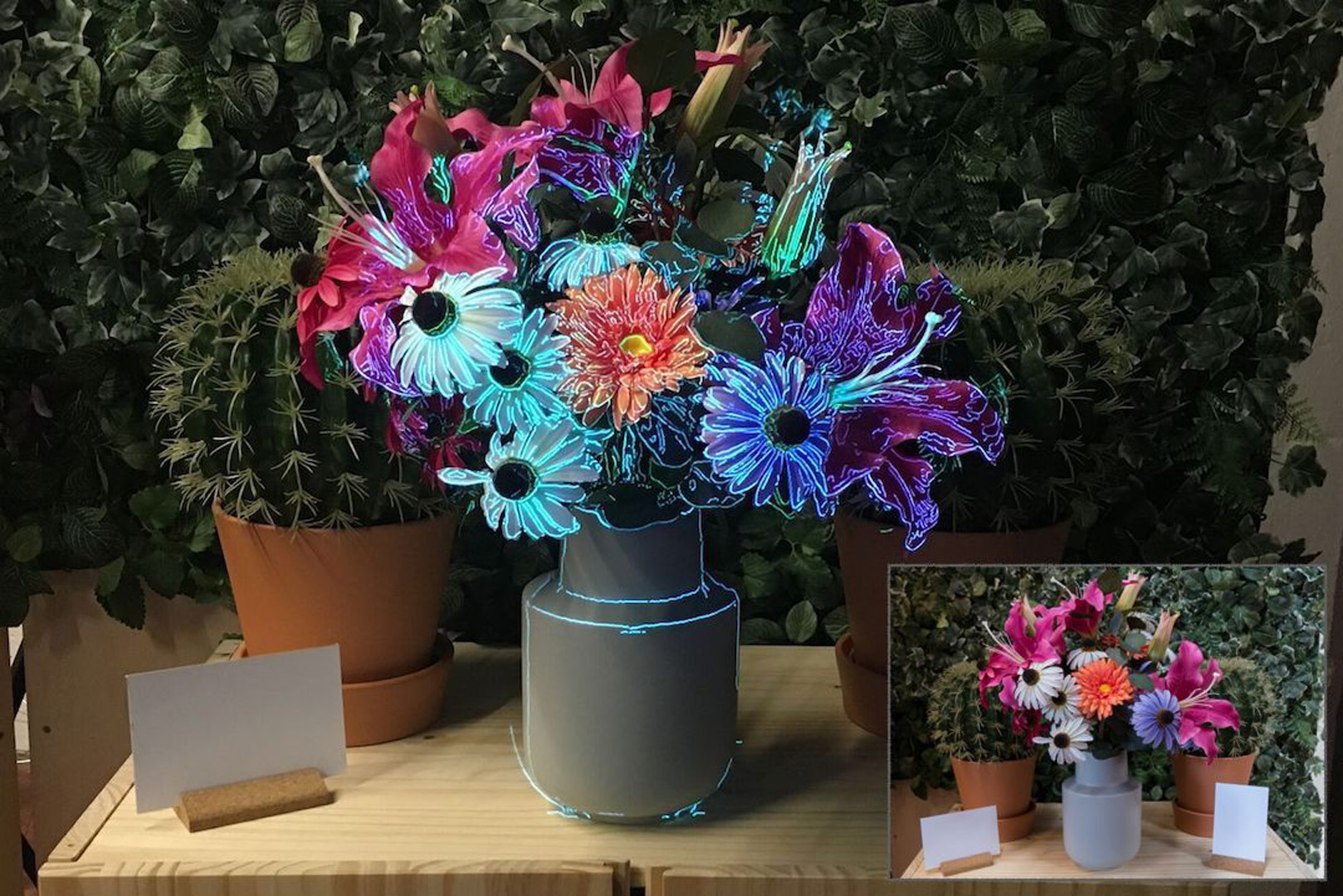“Lightform: Procedural Effects for Projected AR” by Factura, LaPerche, Reyneri, Jones and Karsch
Conference:
Experience Type(s):
Title:
- Lightform: Procedural Effects for Projected AR
Organizer(s)/Presenter(s):
Description:
Projected augmented reality, also called projection mapping or video mapping, is a form of augmented reality that uses projected light to directly augment 3D surfaces, as opposed to using passthrough screens or headsets. The value of projected AR is its ability to add a layer of digital content directly onto physical objects or environments in a way that can be instantaneously viewed by multiple people, unencumbered by a screen or additional setup. Because projected AR typically involves projecting onto non-flat, textured objects (especially those that are conventionally not used as projection surfaces), the digital content needs to be mapped and aligned to precisely fit the physical scene to ensure a compelling experience. Current projected AR techniques require extensive calibration at the time of installation, which is not conducive to iteration or change, whether intentional (the scene is reconfigured) or not (the projector is bumped or settles). The workflows are undefined and fragmented, thus making it confusing and difficult for many to approach projected AR. For example, a digital artist may have the software expertise to create AR content, but could not complete an installation without experience in mounting, blending, and realigning projector(s); the converse is true for many A/V installation teams/professionals. Projection mapping has therefore been limited to high-end event productions, concerts, and films, because it requires expensive, complex tools, and skilled teams ($100K+ budgets). Lightform provides a technology that makes projected AR approachable, practical, intelligent, and robust through integrated hardware and computer-vision software. Lightform brings together and unites a currently fragmented workflow into a single cohesive process that provides users with an approachable and robust method to create and control projected AR experiences.








